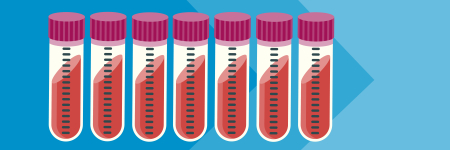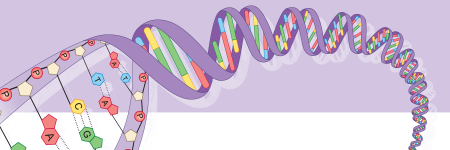Updates on key developments in genomics

Eight things a genetic counsellor may already be doing in your clinic
For today’s #GCAwarenessDay2023, NHS genetic counsellor Lily Barnett explains what you may see from this increasingly important and specialised profession

Gene therapy – a new approach for paediatric hearing loss
A new gene therapy is being trialled for children with a rare form of deafness caused by variants in the OTOF gene

The key principles behind newborn genome screening
The Generation Study will explore the benefits and challenges of sequencing the genomes of 100,000 newborn babies

Genomics England to launch the Generation Study
This winter sees the start of the Generation Study, which will explore the benefits and challenges of sequencing the genomes of 100,000 newborns

Mainstreaming whole genome sequencing: where are we now?
Genomic testing capabilities are advancing in affordability and accessibility by the day. But what is the current trajectory of whole genome sequencing in healthcare?

Cell-free DNA – prenatal testing and beyond
Testing for cell-free DNA is growing beyond its current use in prenatal testing, but how else is it used in practice today?

Researchers devise single test to rapidly pinpoint a fever's cause
One test looking at many possible causes of a fever could help clinicians quickly diagnose very unwell children

Sequencing the Y chromosome - five things we now know
After years of research, a fully annotated sequence of the human Y chromosome has been published. We celebrate this breakthrough with a few key facts

Children at centre of new genomics health research programme
New genomic bioresource D-CYPHR seeks to decode the DNA at the heart of childhood disease

The role of genes in susceptibility to skin cancer
The UK is no sun-drenched paradise, but skin cancer is common among the population. As summer ends, we consider new research that may offer an explanation as to why

Whole genome sequencing: Seven uses in health and research
In part two of our blog series, we look at the many UK initiatives that are taking advantage of the power and precision of whole genome sequencing

Whole genome sequencing for diagnosis of infants
A 2023 US study has investigated whether panel testing or whole genome sequencing is more likely to provide a molecular diagnosis, and we consider how the results apply to the NHS

DNA clues discovered for asymptomatic and long Covid conditions
The HLA-B and FOXP4 DNA regions may be the link between Covid-19 symptom severity and our genome, according to two papers

What's in a little variation?
Genomic variation is the root of many of our traits, including what we look like and our susceptibility to many diseases. But what is it?

How has whole genome sequencing transformed the investigation of rare disease?
The way in which rare diseases are investigated has been opened up by whole genome sequencing. We look at its impact on both clinicians and patients

Polygenic scores show promise for improved prostate cancer detection
Three in ten men would have been spared an invasive prostate cancer-confirming biopsy if their own genomic data were considered, say Stanford University researchers

First results returned from NHS cancer blood test
Two in three patients with suspected cancer symptoms could receive an early diagnosis from a new blood test

Hidden genomics in health visiting
In this feature article for the 2023 #GenomicsConversation week, we explore the vital role that health visitors play in unlocking the potential of genomics for patients

Can you spot the hidden genomics?
We've put together eight short healthcare scenarios where genomics may play a part. See if you can work it out, and click to reveal if you're right

Experts through experience: Arti’s story
In today’s #GenomicsConversation blog post, we share Arti’s story of pursuing genomic testing and finding answers about her condition

Experts through experience: Jo’s story
As part of this year’s #GenomicsConversation, patient advocate Jo shares her breast cancer journey, which began before the NHS Genomic Medicine Service was set up


